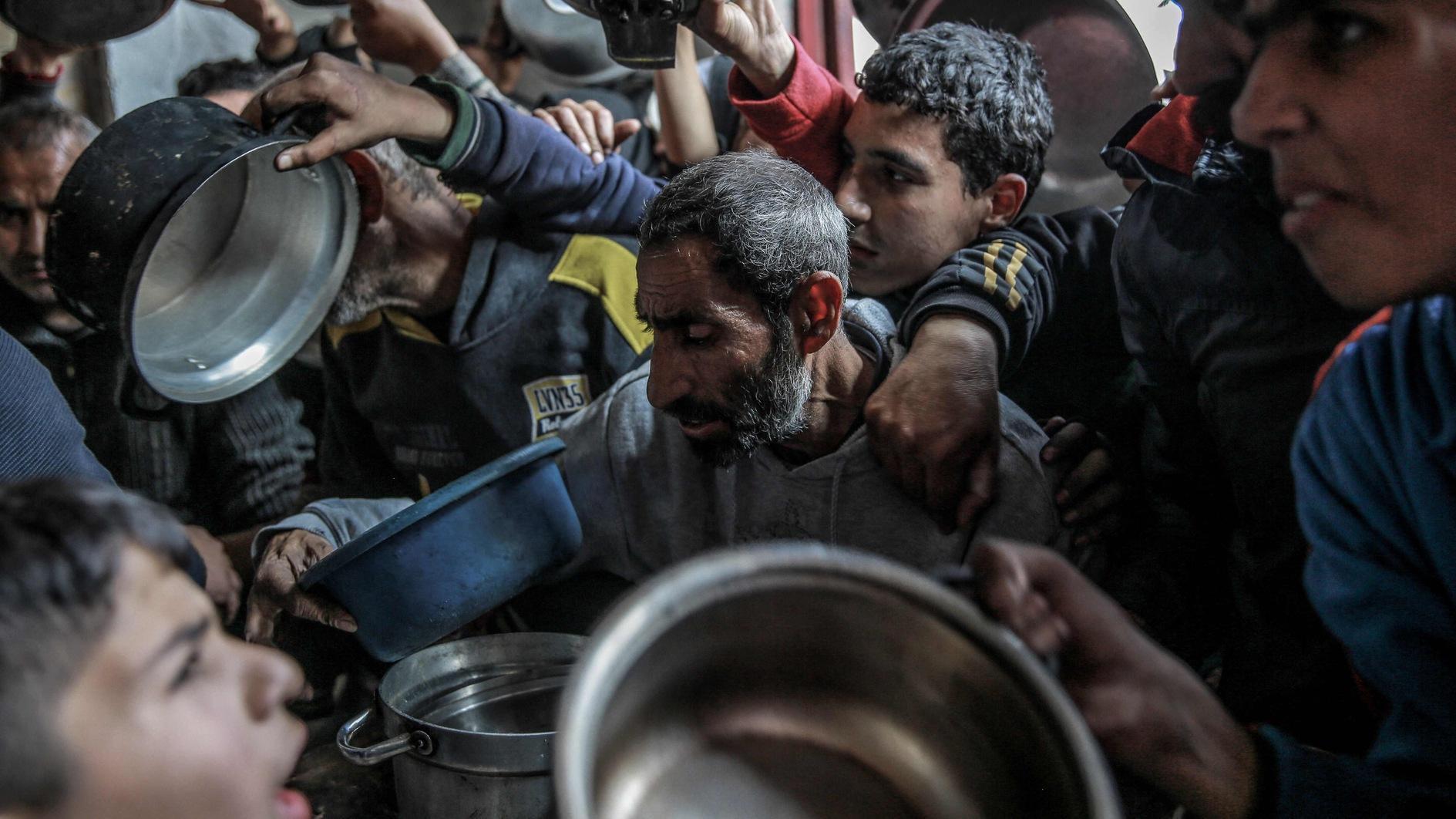
Israel announced on Friday that it would allow "temporary" aid deliveries into famine-threatened northern Gaza, hours after the United States warned of a sharp shift in its policy over the Gaza war.
In a tense, 30-minute phone call on Thursday, U.S. President Joe Biden told Prime Minister Benjamin Netanyahu that United States policy on Israel was dependent on the protection of civilians and aid workers in Gaza, the first hint of possible conditions to Washington's military support.
Just hours later, in the middle of the night in Jerusalem, Israel announced it would open more aid routes into the coastal Palestinian territory which Israel placed under siege at the start of the war nearly six months ago.
"Israel will allow the temporary delivery of humanitarian aid" through the Ashdod Port and the Erez land crossing, as well as increased deliveries from neighbouring Jordan at the Kerem Shalom crossing, Netanyahu's office said.
The White House quickly welcomed the moves — saying they came "at the president's request" — and said they "must now be fully and rapidly implemented".
Israel has come under mounting international pressure over the toll inflicted by its six-month war on Hamas, and drawn increasingly tough rebuke from its main backer Washington.
The bloodiest-ever Gaza war began with Hamas's Oct. 7 attack on Israel that resulted in the deaths of 1,170 Israelis and foreigners, most of them civilians, according to an AFP tally based on official Israeli figures.
Palestinian militants also took around 250 hostages, about 130 of whom remain in Gaza, including 34 whom the army says are dead.
Israel's retaliatory campaign has killed at least 33,037 people, according to the health ministry in Hamas-run Gaza, while the United Nations has warned of "catastrophic" hunger.
'Unacceptable'
Palestinians in northern Gaza have eaten an average of just 245 calories per day — less than a can of beans — since January, according to the charity Oxfam.
Charities have accused Israel of blocking aid, but Israel had defended its efforts and blamed shortages on groups' inability to distribute aid once it gets in to Gaza.
The dangerous work of trying to stem a famine was underscored this week by an Israeli strike that killed seven humanitarian workers distributing food in Gaza.
"The strikes on humanitarian workers and the overall humanitarian situation are unacceptable," Biden told Netanyahu, according to a White House summary of their call.
Biden also "made clear that U.S. policy with respect to Gaza will be determined by our assessment of Israel's immediate action" to improve the humanitarian situation.
A longtime Israel supporter, Biden is facing growing criticism in an election year over his response to the Gaza war — with allies pressing him to leverage the billions of dollars in military aid sent by Washington.
"If we don't see the changes that we need to see, there'll be changes in our own policy," U.S. top diplomat Antony Blinken told reporters after the leaders' phone call, without elaborating on what would shift.
Blinken added that, as a democracy, "Israel is not like Hamas," and democracies "place the highest value" on every human life.
"If we lose that reverence for human life, we risk becoming indistinguishable from those we confront," Blinken said.
'Concern' over Rafah plan
Netanyahu has vowed to destroy Hamas, including in Gaza's southern city of Rafah, despite widespread international concern that such an operation would only worsen a humanitarian catastrophe in Gaza.
Pentagon chief Lloyd Austin said the deadly strike on the World Central Kitchen staff had "reinforced the expressed concern over a potential Israeli military operation in Rafah, specifically focusing on the need to ensure the evacuation of Palestinian civilians and the flow of humanitarian aid".
In a call with his Israeli counterpart, Austin also "discussed the threat posed by Iran and its proxy activities", according to the Israeli army.
Iran blamed Israel for an air strike on Monday on the Iranian consulate in Damascus that killed seven Iranian Revolutionary Guards, two of them generals.
Analysts saw the move as part of stepped-up Israeli actions against Iranian and pro-Iran commanders in Syria and Lebanon, which they said could spiral into wider war.
Iran's supreme leader Ayatollah Ali Khamenei vowed in a social media message post in Hebrew that "with God's help we will make the Zionists repent of their crime of aggression against the Iranian consulate in Damascus".
The Israeli military said that after a "situational assessment, it was decided to increase manpower and draft reserve soldiers".
Netanyahu faces intense domestic pressure from the families of the Israeli hostages still held in Gaza, and a resurgent anti-government protest movement.
War cabinet member Benny Gantz, a centrist political rival of Netanyahu, has demanded a snap election in September, a call rejected by the premier's right-wing Likud party.
'No rules'
Relentless Israeli bombardment has reduced much of Gaza to rubble, collapsed the hospital system and spawned a humanitarian crisis, with all of the 2.4 million Palestinians "experiencing acute food insecurity and malnutrition," a World Bank report said on Tuesday.
The Palestinian Red Crescent Society said on Thursday that 31 Gazan children have died as a result of hunger and dehydration.
Despite the dire need, relief work has become almost impossible in Gaza, major international aid groups, including Oxfam and Save the Children, said after Israel killed the World Central Kitchen staff.
Spanish NGO Open Arms, which along with World Central Kitchen was working to establish a maritime aid corridor, announced it was suspending operations after the strike.
"This pattern of attacks is either intentional or indicative of reckless incompetence," the head of the Doctors Without Borders (MSF) charity, Christopher Lockyear, said, calling it "a war fought with no rules".
Of the nearly 200 humanitarian workers killed in the conflict, he said five were MSF staff.
The U.N. Security Council is set to discuss humanitarian workers' safety and Gaza's looming famine on Friday.